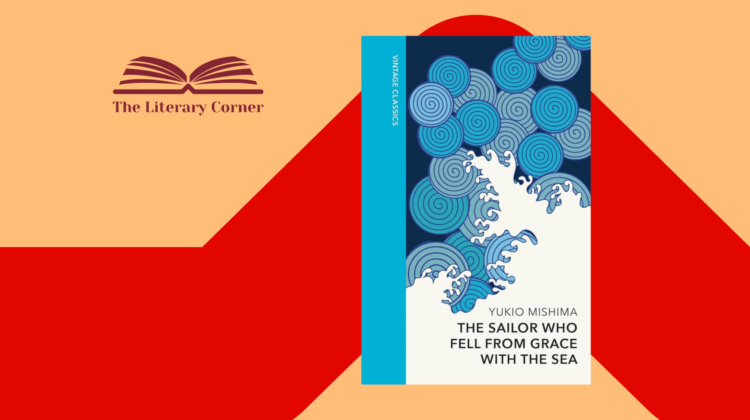
The Sailor who Fell from Grace with the Sea
Title: The Sailor who Fell from Grace with the Sea
Author: Yukio Mishima
Pages: 144
There are few novels that strike with the chilling precision and haunting beauty of Yukio Mishima’s The Sailor Who Fell from Grace with the Sea. First published in 1963, this novel remains an indelible work of Japanese literature, a tale that resonates with themes of alienation, youth, and the violent undercurrents of idealism. This special hardback edition, part of the Vintage Quarterbound Classics series, offers readers the chance to rediscover Mishima’s greatest novel in a beautifully bound format that befits the weight of its narrative.
Set in post-war Japan, the novel revolves around a group of disillusioned thirteen-year-old boys who reject the adult world as false, weak, and hypocritical. Under the leadership of their cold and detached ringleader, these boys cultivate a philosophy of “objectivity,” which for them translates into emotional detachment and a chilling callousness. They pride themselves on their ability to look at the world with cold precision, stripping it of any sentiment or human warmth.
At the centre of this group is Noboru, a boy who idealises his mother’s new lover, Ryuji, a ship’s officer. Initially, Ryuji represents the embodiment of masculine strength and adventure—he is the sailor who stands at the cusp of greatness, representing a life of honour and danger on the high seas. To the boys, Ryuji’s world of endless horizons and salt-lashed decks symbolises freedom from the mundane, the antithesis of the soft, compromising adults around them.
But as Ryuji’s romance with Noboru’s mother deepens, the boys’ admiration turns to bitter disillusionment. Ryuji, the man they once saw as a hero, becomes to them another figure of weakness, compromised by love and domesticity. Their sense of betrayal is palpable and terrifying, and it leads to an act of retribution that is as deliberate as it is horrifying. Mishima masterfully captures the descent of youthful idealism into brutal violence, as the boys’ philosophy of detachment manifests in a tragic and chilling climax.
What makes The Sailor Who Fell from Grace with the Sea so disturbing is Mishima’s portrayal of warped masculinity and the dangerous allure of nihilism. The boys’ cold rationality and disdain for weakness are deeply unsettling, and Mishima’s sparse, elegant prose only serves to heighten the tension. His exploration of the destructive forces that lurk beneath the surface of youthful idealism feels timeless, resonating with modern readers just as it did when the novel was first published.
In this edition, the craftsmanship of the physical book is worthy of note. The quarterbound hardback, with its vintage appeal, invites the reader to treasure this work not just as a novel, but as an artefact of literary significance. The luxurious binding complements the chilling beauty of Mishima’s prose, making this a perfect collector’s item for bibliophiles.
Mishima’s novel, however, is not for the faint-hearted. Its stark exploration of nihilism, its unsettling portrayal of disillusioned youth, and its violent conclusion are not easily forgotten. The novel’s philosophical undercurrents challenge the reader to confront uncomfortable truths about idealism, masculinity, and the nature of violence. It is a novel that leaves an indelible mark, one that lingers long after the final page is turned.
In conclusion, The Sailor Who Fell from Grace with the Sea is a harrowing and thought-provoking tale, rendered all the more impactful by Mishima’s precise, haunting prose. This edition, part of the Vintage Quarterbound Classics series, not only brings this masterpiece to a new generation of readers but also honours its literary legacy with a design as elegant as the novel itself. Mishima’s greatest work remains as powerful and disturbing as ever, a stark reminder of the fragile boundary between admiration and destruction.
Author: The Editorial Team
